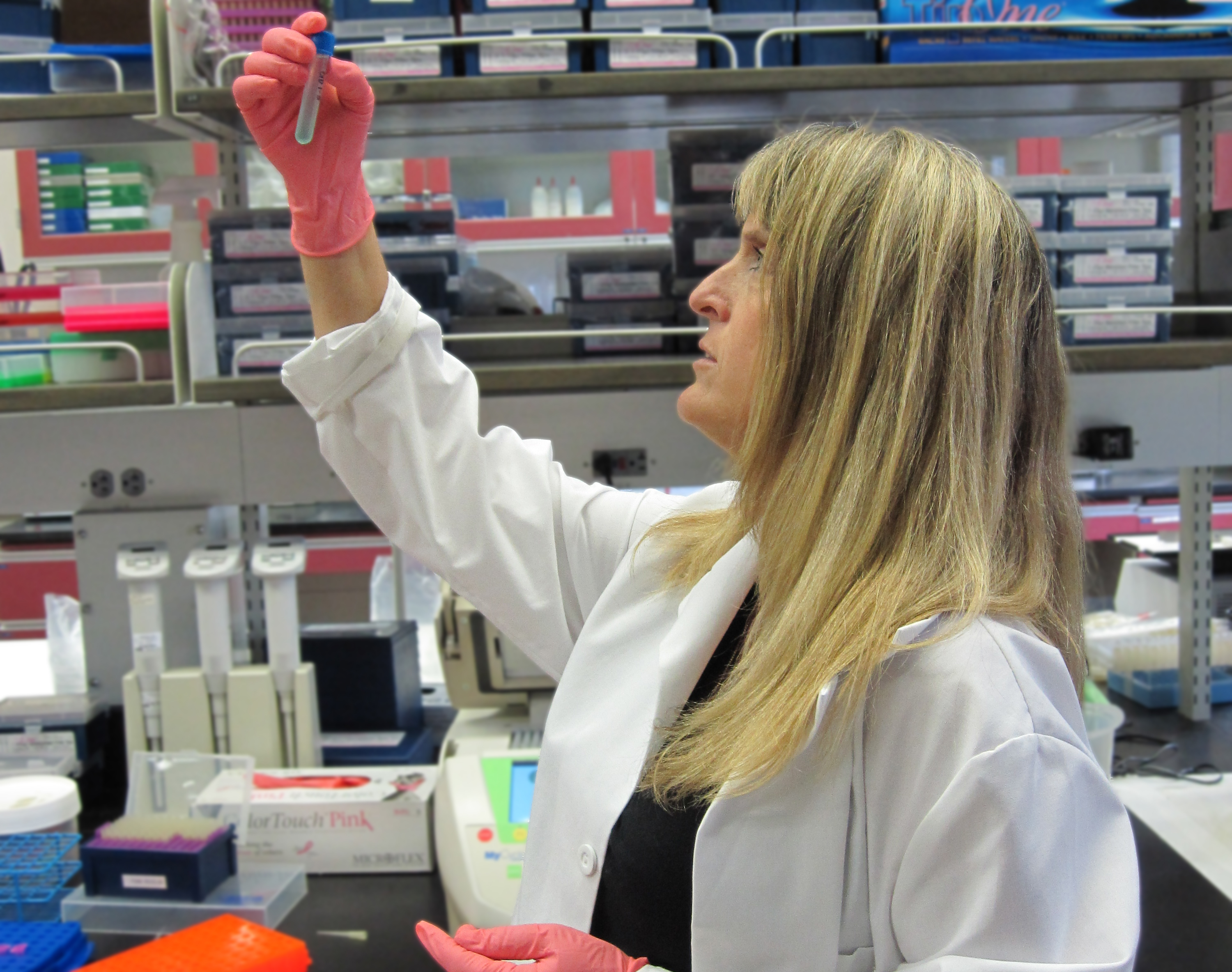Kathleen Alexander receives NIH grant to study effect of climate change on water-borne diseases

Kathleen Alexander, associate professor of wildlife in the College of Natural Resources and Environment and an affiliate faculty member with the Fralin Life Science Institute, is leading a team to study the management and control of water-borne diseases, such as cholera in Haiti, through a National Institutes of Health (NIH) grant.
The grant supplements work conducted under the parent NIH Models of Infectious Disease Agent Study program housed at the Virginia Bioinformatics Institute at Virginia Tech under Professor Stephen Eubank, deputy director of the Network Dynamics and Simulation Science Laboratory.
Alexander, a wildlife ecologist and veterinarian, will guide and coordinate the work of her colleagues: Jason Blackburn, a medical geographer at the University of Florida; Leigh-Anne Krometis, a water engineer in the Virginia Tech College of Agriculture and Life Sciences; and Bryan Lewis, a public health modeler at the Virginia Bioinformatics Institute. Alexander, Blackburn, and Krometis have been working together to study the problems of water quality and health in the Chobe River region of northern Botswana.
The team will evaluate the effectiveness of non-pharmaceutical interventions providing clean water to at-risk populations in Haiti. The project is part of a larger NIH grant to develop computer models to simulate the spread of infectious diseases for use in public health policy and decision making. Alexander’s portion of the grant will be funded $228,510 over a two-year period.
Eubank, who directs the parent grant, says Alexander’s work is important because it addresses the serious problem of an increasing scarcity of clean drinking water.
“Dr. Alexander’s work also provides an important test case for our MIDAS [Models of Infectious Disease Agent Study] project,” Eubank said. “That project focus has shifted from simply modeling epidemics to bridging the gap between modelers and policymakers.”
Instead of incorporating the more commonly used person-to-person model of disease transmission, Alexander is examining the spread of disease through water and ecological interactions. Changes in rainfall and climate conditions will be key factors.
“We are interested in how the environment influences the pathogen and how we can predict and prevent transmission to the human communities, given an understanding of the influence of seasonal and climatic effects on pathogen movement through the system,” Alexander said.
“Public health policy decisions often involve trade-offs between pharmaceutical and non-pharmaceutical interventions, which are as different as apples and oranges,” Eubank said. “Decision support systems must help policymakers explore these trade-offs.”
“Dr. Alexander’s work will allow us to compare vaccinating people and providing clean water as means of preventing cholera outbreaks,” Eubank said. “Both require substantial investments, but they operate on different time scales, with different targeted populations, and have different implications for other infectious diseases.”
“Without the kind of careful causal analysis of the outbreak as a system that Dr. Alexander is undertaking,” Eubank continued, “there would be no way to compare the relative costs and benefits of these interventions, and thus no evidence base for deciding which intervention to take.”
For instance, will drier weather conditions in Haiti concentrate the load of pathogens in drinking water or will they decrease runoff of pathogen-bearing waste, thus lowering cholera incidence? Would distributing chlorine to people concentrated in displaced-persons camps be as effective as a large-scale vaccine program? These are questions Alexander and her team say they hope to answer through the development of computer models that factor in water resources, land use, and climate conditions.
Computers serve as virtual laboratories where researchers can study problems not easily examined in real life. Researchers can change the models to simulate different situations, such as a more urban community or a higher rainfall, and then analyze and compare outcomes to better understand how an outbreak could spread in a variety of scenarios.
This project, involving ecological niche modeling, will extend the scope to longer time scales and a broader set of interventions than those previously undertaken. Specifically, Alexander and her team expect to offer policymakers ways to anticipate the consequences of climate change on the incidence of water-borne disease such as cholera, and to evaluate the effectiveness of interventions that provide clean water to at-risk populations.




